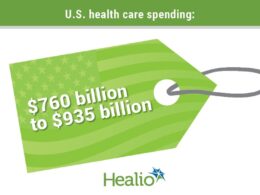the health
transformation
knowledge portal
Joaquim Cardoso MSc
Founder and Chief Researcher, Editor & Strategist
March 12, 2024
What are the key points?
Gender inequalities in health and care work adversely affect women, health systems, and health outcomes.
Women make up the majority of both the paid and unpaid global health and care workforce, facing lower pay and poorer working conditions.
Chronic underinvestment in health and care work has led to a global crisis of care, with billions lacking essential health coverage.
The report emphasizes the need for gender-equitable investments in health and care to reset their value and promote fairer economies.
Policy recommendations include improving working conditions, enhancing women’s participation in the paid labor force, ensuring equal pay, addressing the gender gap in care, and investing in robust public health systems.

This press release was published by the World Health Organisation (WHO) on March 12, 2024.
A new report published by the World Health Organization (WHO), “Fair share for health and care: gender and the undervaluation of health and care work” illustrates how gender inequalities in health and care work negatively impact women, health systems and health outcomes.
The report outlines underinvestment in health systems results in a vicious cycle of unpaid health and care work, lowering women’s participation in paid labour markets, harming women’s economic empowerment and hampering gender equality.
Women comprise 67% of the paid global health and care workforce. In addition to this paid work, it has been estimated that women perform an estimated 76% of all unpaid care activities. Work that is done primarily by women tends to be paid less and have poor working conditions.
The report highlights that low pay and demanding working conditions are commonly found in the health and care sector. Devaluing caregiving, which is work performed primarily by women, negatively impacts wages, working conditions, productivity and the economic footprint of the sector.
The report illustrates that decades of chronic underinvestment in health and care work is contributing to a growing global crisis of care. With stagnation in progress towards universal health coverage (UHC), resulting in 4.5 billion people lacking full coverage of essential health services, women may take on even more unpaid care work. The deleterious impact of weak health systems combined with increasing unpaid health and care work are further straining the health of caregivers and the quality of services.
“The ‘Fair share’ report highlights how gender-equitable investments in health and care work would reset the value of health and care and drive fairer and more inclusive economies,” said Jim Campbell, WHO Director for Health Workforce. “We are calling upon leaders, policy-makers and employers to action investment: it is time for a fair share for health and care.”
The report presents policy levers to better value health and care work:
- Improve working conditions for all forms of health and care work, especially for highly feminised occupations
- Include women more equitably in the paid labour workforce
- Enhance conditions of work and wages in the health and care workforce and ensure equal pay for work of equal value
- Address the gender gap in care, support quality care work and uphold the rights and well-being of caregivers
- Ensure that national statistics account for, measure and value all health and care work
- Invest in robust public health systems
Investments in health and care systems not only accelerate progress on UHC, they redistribute unpaid health and care work. When women participate in paid health and care employment, they are economically empowered and health outcomes are better. Health systems need to recognize, value and invest in all forms health and care work.
To read the original publication, click here.











